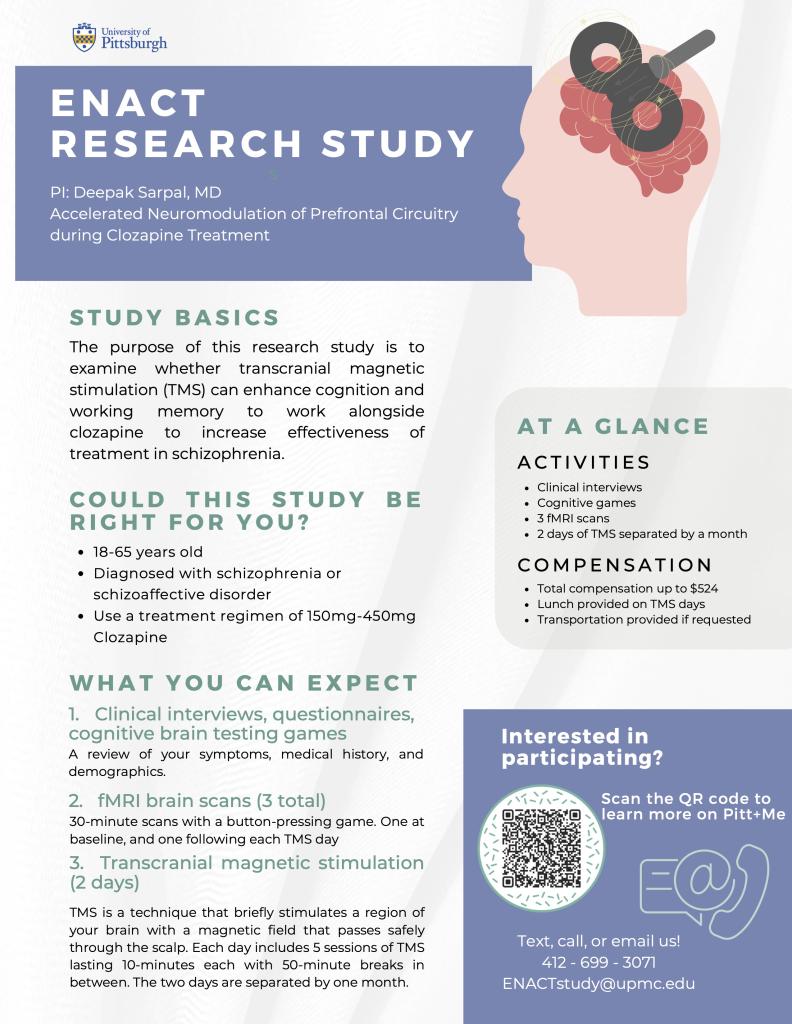Enhancing Neurocognition with ACcelerated TMS
The official title of the grant is Accelerated Neuromodulation of Prefrontal Circuitry during Clozapine Treatment.
Schizophrenia is associated with significant morbidity and mortality across the world, largely due to poor functional outcomes driven by cognitive impairments. Treatment-resistant schizophrenia (TRS), a more severe manifestation of the syndrome, is associated with worse functional outcomes and disproportionately higher individual and socioeconomic burden. Treatment options typically consist of psychosocial interventions and clozapine (CLZ), which remains the sole pharmacologic agent that has demonstrated a unique efficacy for TRS. However, even after success with CLZ, the cognitive deficits and global impairments that limit daily social and vocational functioning remain in most individuals. Thus, there is an urgent need for additional strategies that address the cognitive deficits and the biological complexity associated with TRS. A core cognitive deficit often linked with functional outcomes in schizophrenia is working memory (WM). Our recent work, focused on longitudinal CLZ treatment for TRS, showed that higher WM performance correlates with a greater post- treatment anticorrelation between the dorsolateral prefrontal cortex (DLPFC) and the cholinergic basal forebrain (BF). Critically, this functional circuit overlaps with connectivity findings associated with transcranial magnetic stimulation for major depressive disorder. Recent work has advanced a more efficacious method for transcranial magnetic stimulation that utilizes a connectivity-based, accelerated intermittent theta burst stimulation (iTBS) protocol for treatment-resistant depression. Studies with similar methods suggest that DLPFC stimulation may enhance WM performance.
Given the crucial need for WM enhancement in TRS, and based on our work with CLZ, we will adopt this accelerated iTBS method to target DPLFC-BF functional connectivity. In a within-subject, randomized, crossover design, individuals with TRS receiving CLZ treatment will complete sessions of both accelerated iTBS and sham stimulation. Participants will undergo fMRI scanning at rest and while performing a WM task at baseline and immediately after both iTBS and sham stimulation. We will examine whether accelerated iTBS results in: (1) greater DLPFC-BF anticorrelation, and (2) increased WM activation and performance.
If you're interested in participating in the ENACT study, please visit our Pitt+Me page, or email us directly:
ENACTstudy@upmc.edu
Pitt+Me ~ ENACT Study (pittplusme.org)

